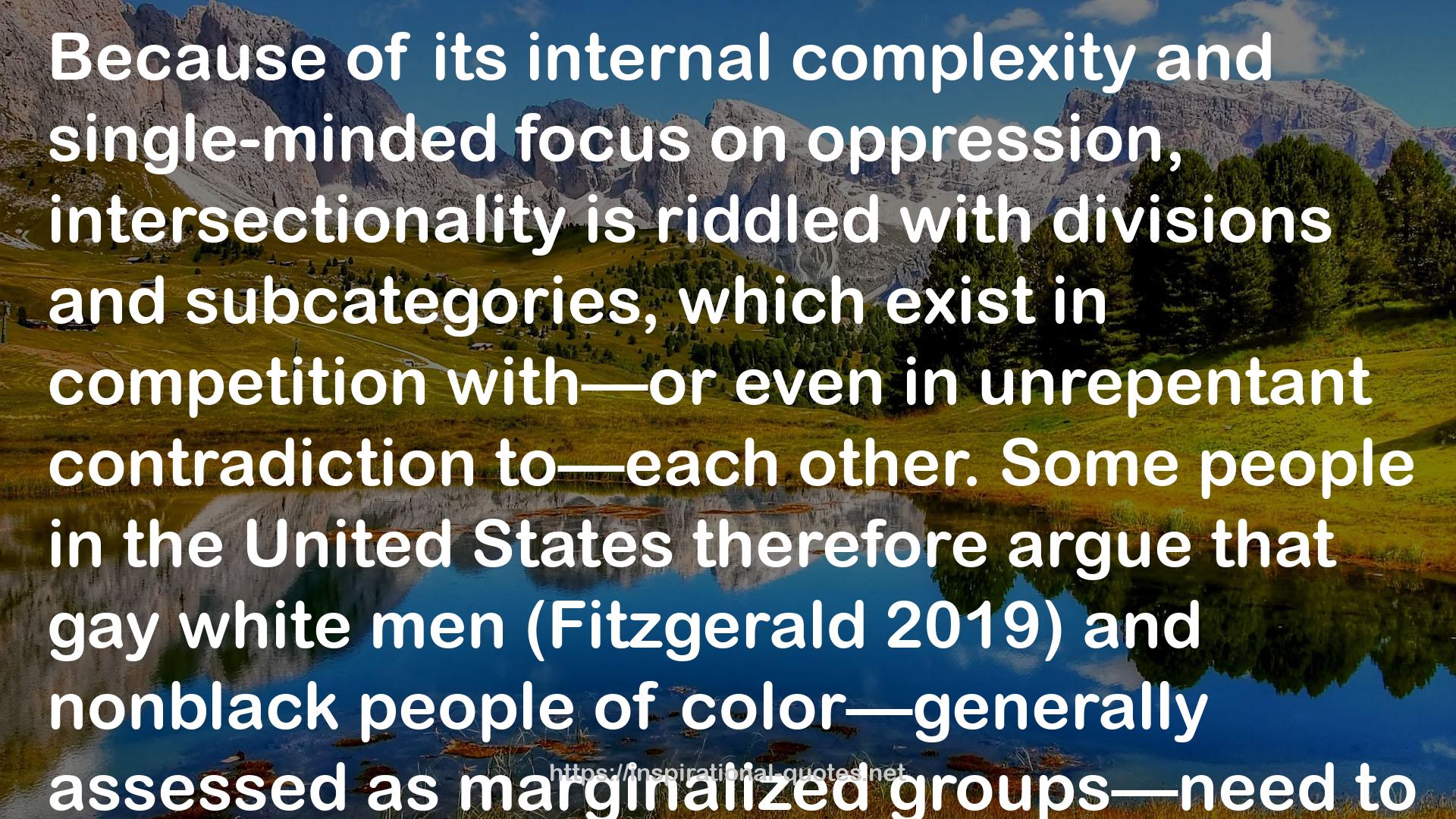" Because of its internal complexity and single-minded focus on oppression, intersectionality is riddled with divisions and subcategories, which exist in competition with—or even in unrepentant contradiction to—each other. Some people in the United States therefore argue that gay white men (Fitzgerald 2019) and nonblack people of color—generally assessed as marginalized groups—need to recognize their privilege and antiblackness (Chung 2017). This can lead to the insistence that lighter-skinned black people recognize their privilege over darker-skinned black people (Tracey 2019). Straight black men have been described as the “white people of black people” (Young 2019). It is also not uncommon to hear arguments that trans men, while still oppressed by attitudes towards their trans status, need to recognize that they have ascended to male privilege (Abelson 2014) and amplify the voices of trans women, who are seen as doubly oppressed, by being both trans and women. Gay men and lesbians might well find themselves not considered oppressed at all, particularly if they are not attracted to trans men or trans women, respectively, which is considered a form of transphobia and misgendering (Sara C 2018). Asians and Jews may find themselves stripped of marginalized status due to the comparative economic success of their demographics, their participation in “whiteness,” or other factors (Kuo 2018; Lungen 2018). Queerness needs to be decolonized—meaning made more racially diverse—and its conceptual origins in white figures like Judith Butler need to be interrogated (Small 2019). "
― Helen Pluckrose
Image for Quotes

